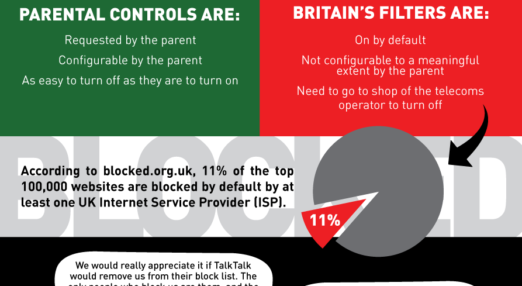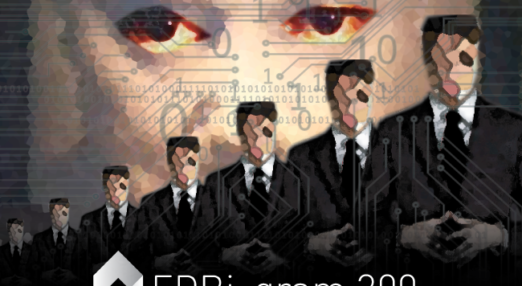Our work
EDRi is the biggest European network defending rights and freedoms online. We work to to challenge private and state actors who abuse their power to control or manipulate the public. We do so by advocating for robust and enforced laws, informing and mobilising people, promoting a healthy and accountable technology market, and building a movement of organisations and individuals committed to digital rights and freedoms in a connected world.
Filter resources
-

EU Commission set to re-brand the failed CleanIT project
Every once in a while, the European Commission launches talks with the Internet industry to encourage companies to take voluntary actions in response to a very diverse range of possibly illegal or unwanted online activity. Past initiatives have not been hugely successful, and they have frequently raised concerns regarding their vagueness, their lack of transparency […]
Read more
-

General Data Protection Regulation: Moving forward, slowly
The discussions in the EU on the proposal for a General Data Protection Regulation (GDPR) are slowly advancing, but the final destination is still unknown. Commissioner Věra Jourová , who is responsible for Justice, Consumers and Gender Equality and has the task of ensuring the “swift adoption of the EU data protection reform”, has stated […]
Read more
-

Turkey blocks political websites
Engelli Web is an independent monitoring website that lists websites blocked by the Turkish government. Currently it lists over 80 000 domains and the number keeps rising. The real figure is probably much higher, because the government does not disclose the exact list of banned sites. Although the majority of the sites are blocked on […]
Read more
-

Data retention: German government tries again
Even before the parliamentary summer recess starting on 4 July, the German government wants to push a national law on data retention through the German Bundestag. After the Ministry of Justice presented so-called guidelines in mid-April, and a complete draft law only a month later, the Parliament is now supposed to debate and pass this […]
Read more
-

Danish Ministry of Culture: Danes should be regulated by Google
In 2012, ACTA was rejected by the European Parliament with an overwhelming majority, not least due to its proposals to allow private law enforcement by foreign internet companies. Despite this, on 8 May 2015, the Danish Ministry of Culture presented a “Code of Conduct” agreement with a number of internet intermediaries, which in many respects […]
Read more
-

Startups for Net Neutrality
The future of our open Internet is at risk. Current EU developments creating the risk of allowing large Internet Service Providers (ISPs) to make the internet less open and less free. “Startups for Net Neutrality” believes that the beauty of the Internet is that everybody with a laptop and an Internet connection can change the […]
Read more
-
Net Neutrality – building on success
[This post is published jointly with Access] Tomorrow, the European Parliament will decide whether or not it supports a proposal for anti-Net Neutrality legislation (PDF – last publicly available document) advanced by the representatives of the EU member states (“the Council of the EU”). For the past few months, the Latvian presidency of the Council […]
Read more
-

Parliament Committee adopts a disappointing position on TTIP
The European Parliament’s Committee on International Trade (INTA) adopted this morning a position on the planned “Transatlantic Trade and Investment Partnership” (TTIP) between the United States and the European Union. “We are delighted with the campaigning activity surrounding this vote,” said Joe McNamee, Executive Director of European Digital Rights. “It is clear that Europe’s citizens will […]
Read more
-

Parental Controls: Lawless blocking/filtering as part of “net neutrality”?
At the request of the United Kingdom, the Council of the European Union, the European Commission and European Parliament appear ready to adopt – in the context, ironically, of measures that are supposed to protect net neutrality – provisions which are meant to allow UK-style blocking and filtering across Europe. This approach was opposed in […]
Read more
-
Net neutrality – is the European Parliament ready to accept complete failure?
After an overwhelming vote in favour of net neutrality by the European Parliament in April 2014, this position in favour of free speech, competition and innovation is now in danger. The negotiations between the European Parliament (the only directly-elected institution of the European Union) and the Council of the European Union (“the Council,” representing the […]
Read more
-

EDRi-gram 300: Digital rights news from 2025
We are proud to present the 300th edition of the EDRi-gram as an eBook entitled “Digital rights news from 2025”!
Read more
-
EDRi-gram 300 – Digital rights news from 2025
We are proud to present the 300th edition of the EDRi-gram! Since 2003, the EDRi-gram is reporting on developments across Europe to raise awareness of attacks on freedom of expression and privacy as well as to highlight good news and best practice. The EDRi-gram publishes free speech and privacy advocates’ media stories from across Europe every […]
Read more
